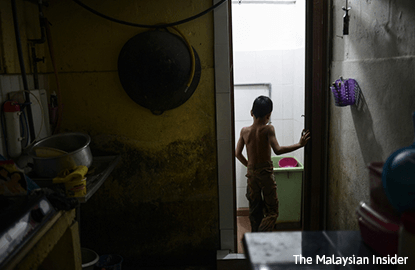

KUALA LUMPUR (Jan 28): The budget revisions to be announced today by the prime minister must not affect education and government programmes for the working class, say analysts.
Instead, they urged Putrajaya to address its bloated government machinery and plug financial leakages that have seen millions of ringgit wasted every year.
They said this would not only help Putrajaya save money, but also regain trust for the Najib administration from an infuriated public squeezed with new taxes, toll hikes and higher food costs.
At the same time, Putrajaya should redirect savings to programmes meant to help the bottom 40% of Malaysians.
Anas Alam Faizli of the think tank Blindspot said for instance, Putrajaya can prepare to help the increasing number of mostly blue-collar workers who could be laid off this year as the economy sours.
The Malaysian Employers Federation expects to see more workers losing their jobs this year. Some 20,000 workers lost their jobs last year due to slow business.
“It is already bad when people lose their jobs. But when they are not able to get new jobs, the pressure on them to feed their families is even more intense,” said Anas, who authored the book "Rich Malaysia, Poor Malaysians".

"Putrajaya has to think of how to help these people instead of making the situation worse by increasing taxes or driving up inflation," said Anas (pic).
Instead of blindly cutting the budgets of ministries and agencies, they should prioritise cuts, he added.
“The most obvious cuts should be at the Prime Minister’s Department while education programmes should not be touched or should be the last to face cuts," said Anas.
The Prime Minister’s Department received a RM1.1 billion boost under Budget 2016, even as funds shrunk for sectors such as education, skills development, industry development, public transport, welfare, women’s health and youth.
The government said it wanted to "recalibrate" the budget to reflect the lower oil prices.
The budget tabled in October last year was calculated with the assumption that oil price would be around US$48 per barrel for 2016. It has since fallen to US$30 per barrel.
The revision is also due to the falling value of the ringgit against the US dollar, driving up prices of imports from construction materials to food.

Although Putrajaya has officially announced that it would go on an austerity drive in 2016, there were still signs that ministries were not cutting back on expensive bashes and lavish treatment for big wigs, said economist Tan Sri Ramon Navaratnam (pic).
“Ministers are still flying first class and we have kenduri (feast) and door gifts at every function. This must stop. These things look small on paper but they eventually add up,” said Ramon who held senior positions at several ministries.
He added that the austerity drive would also be the perfect occasion to punish departments caught wasting public money, such as those named in the auditor-general’s reports.
“This would send the message that the government needs to be frugal,” said Ramon, who is also chairman of the Asli Center of Public Policy Studies.
Other expenses that could be put off till the economy improves, said Ramon, are infrastructure projects which have a high amount of components that need to be imported.
The Najib administration should also not fear breaking its own pledge to stick to its budget deficit target of 3.1%, in order to please international rating agencies.
Ramon said Putrajaya would be able to justify overspending if the money truly helps the working class and the vulnerable during this tough year.
“These ratios should not be cast in stone and more leeway and flexibility should be allowed during these trying times.”